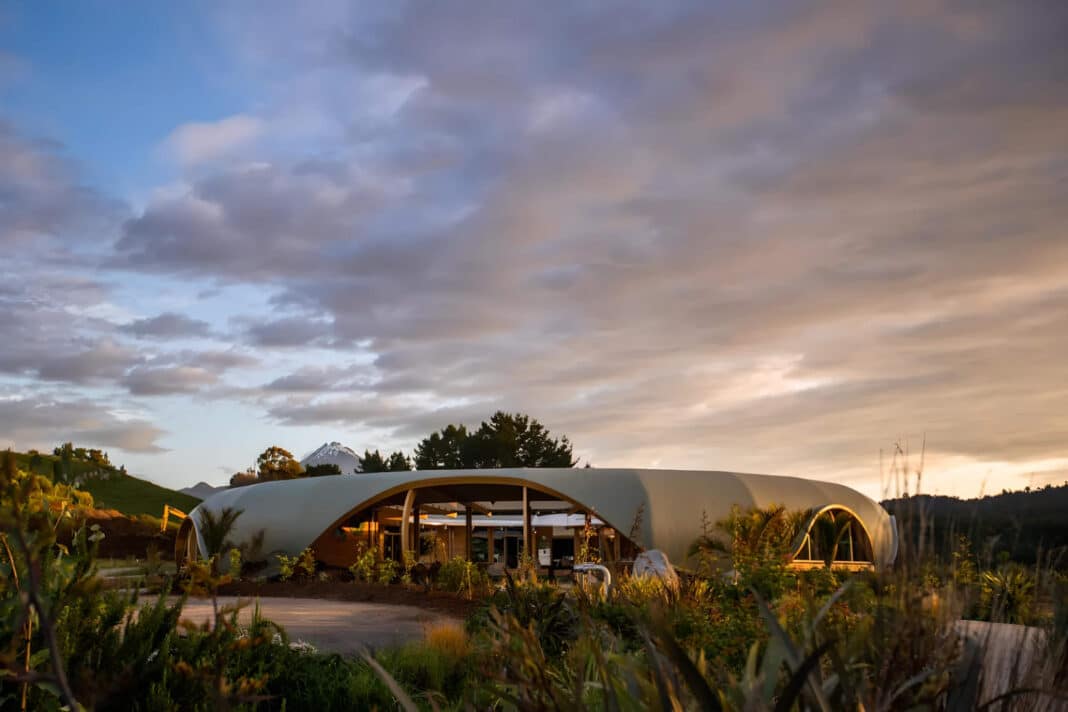A first-of-its-kind school has been crowned the NZ Timber Design Awards Supreme Award at a ceremony in Auckland overnight.
The Bali-inspired “Green School” was designed by NZ practice Boon, transforming a farm into a fully circular school with no walls. Using a design brief that challenged the notion that “people inhabit boxes.”
“We introduced curves into the design at an early stage to use a form from nature and devised three ‘Waka’ pods, allowing for six teaching spaces,” the studio said.
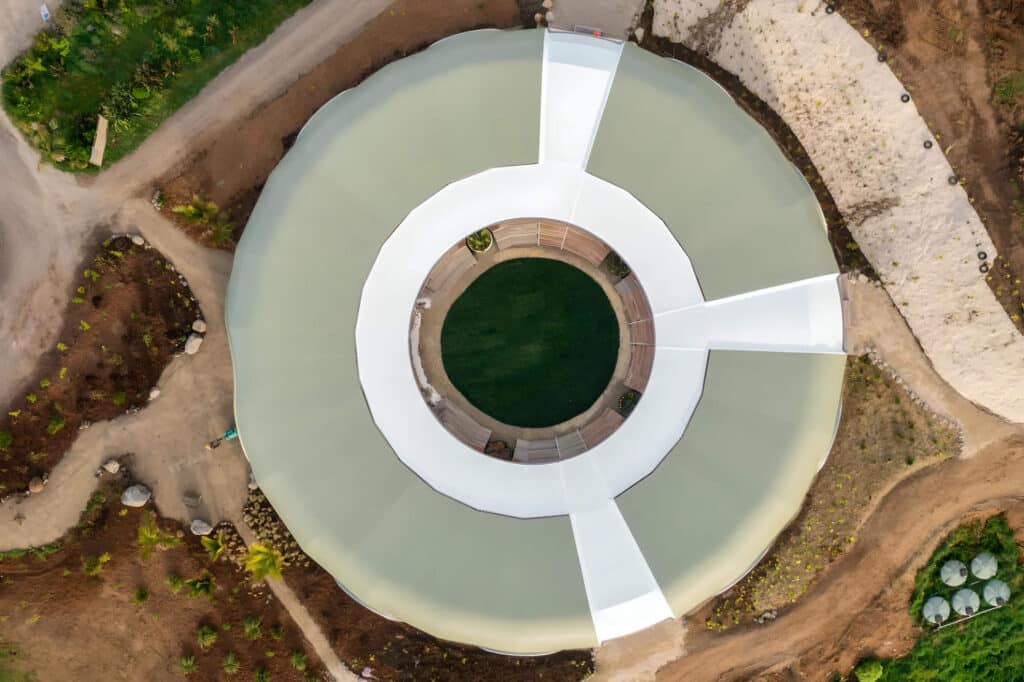
With Glulam, “the obvious choice for the primary structural elements,” allowing it to “design faster to build, higher performing and less wasteful buildings,” resulting in “60% less waste going to landfill.”
“Not only was it a material in which the structural engineers had an interest and with which they had worked before, but it fits the project brief, which called for low-carbon, sustainable and energy-efficient design.”
According to the school, the timber structure, driven piles, material selection and emphasis on insulation and ventilation systems “ensures the building mirrors the environmental values the school is modelled on.”
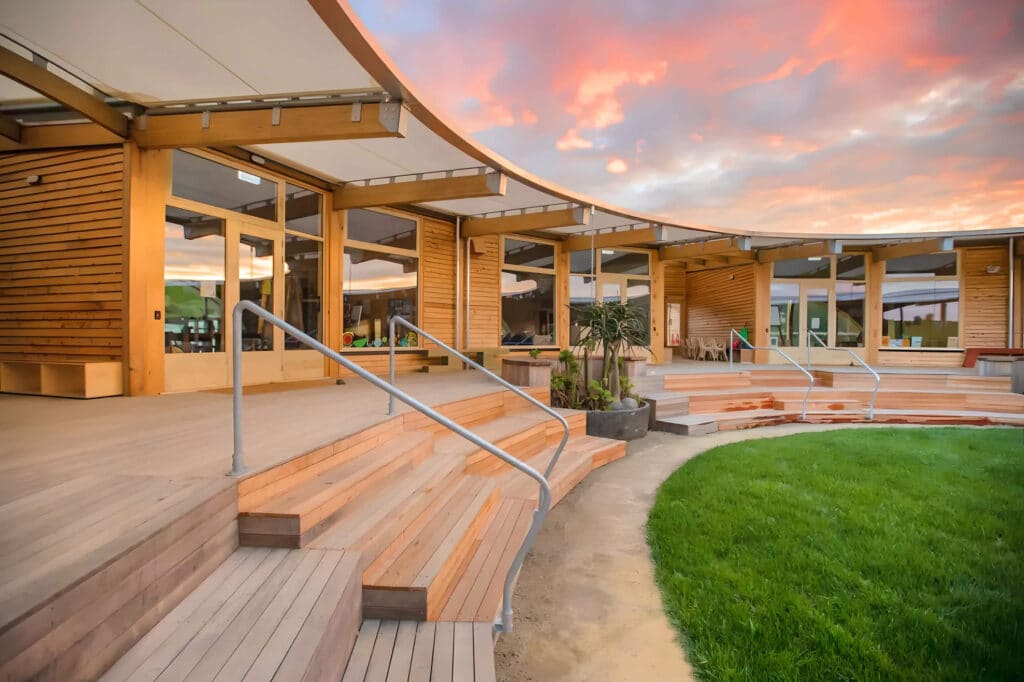
The project was among 61 finalists and 13 awarded at the awards, with a record number of entries using hybrid construction systems, including the award-winning Scion Innovation Hub, Homeground and Costa Street developments.
“Green School was a clear winner,” according to the judging panel, “demonstrating the beauty, efficiency and sustainability of timber.”
Led by David Carradine, Senior Structural Engineer at BRANZ, the judging included Jan Stanway, Technical Director for WSP in New Zealand, Andrea Stocchero, Senior Analyst for the Te Uru Rākau – New Zealand Forest Service, and Judith Taylor, the President of the NZ Institute of Architects.
“The materials of the whole of the life cycle was considered from design process to execution to the end of its useful life, ensuring that timber was as sustainably sourced and manufactured as possible,” according to a statement provided by Award Manager Debbie Fergie.
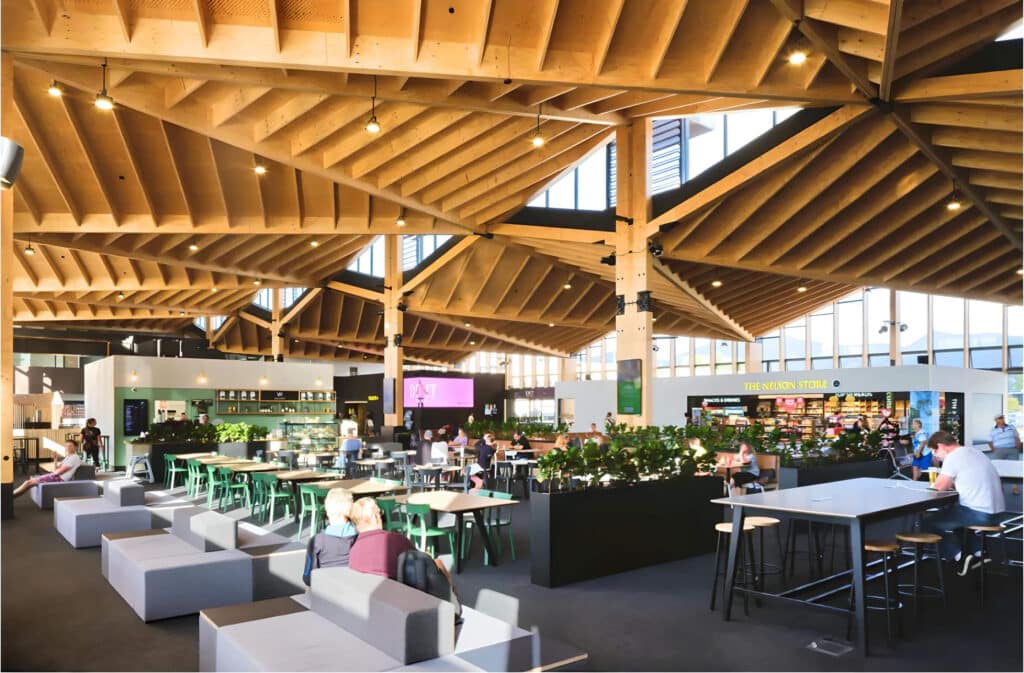
“This allowed it to be a beautiful building now, and at the end of its long life, most of the timber elements will be able to be recycled.”
In addition to Green School, the Nelson Airport was highly commended for its “seamless fusion of architecture, engineering and timber,” which “represents a global benchmark for timber architecture and engineering innovation.”
Amongst other highlights included the People’s Choice Award, which for 2023 was awarded to Māori Concepts’ Tomomai ki Ahipara in Northland.
As part of an invested provincial funding grant, the Tomomai ki Ahiparapara was one of three sites mandated by three Marae and supported by hapu leaders from the Ahipara region.
“The Ahipara marae selected me as the sculptural artist to best showcase their narratives and provide a gateway that the local community would be proud of,” according to sculpture artist BJ Natanahira.
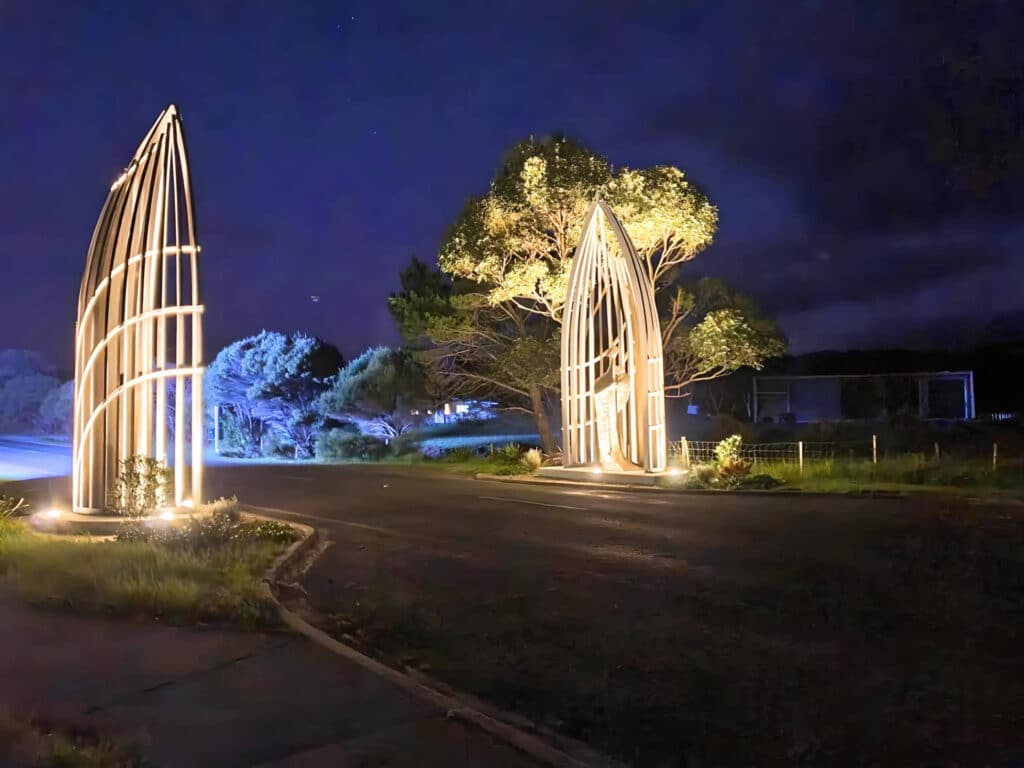
According to Mr Natanahira, native timber has an essential status in the Maori world view and “it was imperative that the timber used would maintain that status.”
“The challenge faced was how to best present a non-native timber material selected for longevity within a coastal environment and amplify its status to be adopted as acceptable within a Maori world. .”
“The answer was through a contemporary application of timber to represent a narrative that is culturally significant and held in high regard – the waka form.”
A complete list of the winners and finalists included:
Category 1: Residential Design, Single Family Dwelling:
Winner: Studio house by William Samuels Architects (Nelson)
Highly Commended: Kauri house by Context
Cat. 2: Residential Design, Multi-Unit Dwellings (< 3 storeys):
Winner: 90 Carrington Road by RM Designs & Engco (Auckland)
Highly Commended: Parawai Crescent by RM Designs & Engco (Auckland)
Cat. 3: Commercial & Public Building Design:
Winner: Green School – Kina by Boon (Taranaki)
Highly Commended 1: St Hilda’s Anglican Church, by First Light Studios (Wellington)
Highly Commended 2: St Kentigern’s Preschool, by Smith Architects (Auckland)
Cat. 4: Mid-rise Building Design:
Winner: Clearwater Quay Apartments, by Pacific Environments NZ (Christchurch)
Highly Commended: Homeground, Te Tapui Atawhai by Stevens Lawson Architects (Auckland)
Cat. 5: Interior Design:
Winner: Learning from Trees, by Andrew Barrie Lab (offshore)
Highly Commended: Taunga Waka Rererangi o Kirikiriroa – Hamilton Airport, by Archimedia Waikato Architects (Hamilton)
Cat. 6: Exterior Structure Design:
Winner: Horoeka, by David Trubridge (Rotorua)
Highly Commended: The Elms – Te Papa, Heritage Garden Pavilion, Tauranga, by Matthews & Matthews Architects, Tauranga
Cat. 7: NZ Specialty Timber Award:
Winner: Te Rau Karamu Marae, by Athfield Architects and Te Kahi Toi (Wellington)
Highly Commended: Venice Benches, by Michael Davis (offshore)
Cat. 8: Sustainable Development Award:
Winner: Te Whare Nui o Tuteata – Scion Timber Innovation Hub, by Irving Smith Architects, RTA Studio & Dunning Thornton Consultants (Rotorua)
Highly Commended: Te Noninga Kumu – Motueka Public Library, by JTB Architects (Tasman)
Cat. 9: Hybrid Building Award:
Winner: Wall-E, by Irving Smith Architects (Nelson)
Highly Commended: Dowie Rose house, by Dowie Architects (Auckland)
Cat. 10: Innovative Timber Engineering Award:
Winner: Nelson Airport, by Studio Pacific Architecture, Dunning Thornton Consultants, Gibbons Naylor (Nelson)
Highly Commended 1: Gunyama Park Aquatic and Recreation Centre, Kirk Roiberts (Australia)
Highly Commended 2: Te Whare Nui o Tuteata – Scion Timber Innovation Hub, Irving Smith Architects, RTA Studio & Dunning Thornton Consultants
Cat. 11: Innovative Timber Manufacturing & Technology:
Winner: Lightweight Timber Research Structures, by Andrew Barrie Lab & Batchelar McDougall (staff & students at a New Zealand University)
Highly Commended: Te Whare-iti / Dorking Road house, by Aonui Architecture (Wellington)
Cat. 12: Student Design Award:
Winner: The Vertical Stage, by Gregory Mann (independent)
Highly Commended: The Saucer (Summerhill Charitable Trust), by Thomas Nguyen University of Auckland
Supreme Award:
Winner: Green School – Kina by BOON (Taranaki)
Highly Commended: Nelson Airport, by Studio Pacific Architecture, Dunning Thornton Consultants, Gibbons Naylor (Nelson)
People’s Choice Award:
Winner: Tomomai ki Ahipara, Maori Concepts (Northland)
Highly Commended: St Hilda’s Anglican Church, First Light Studio (Wellington)




